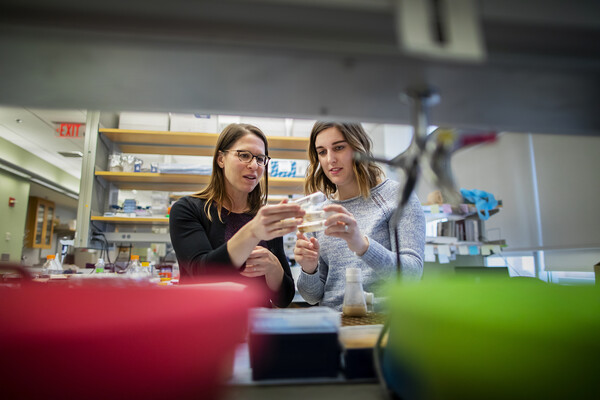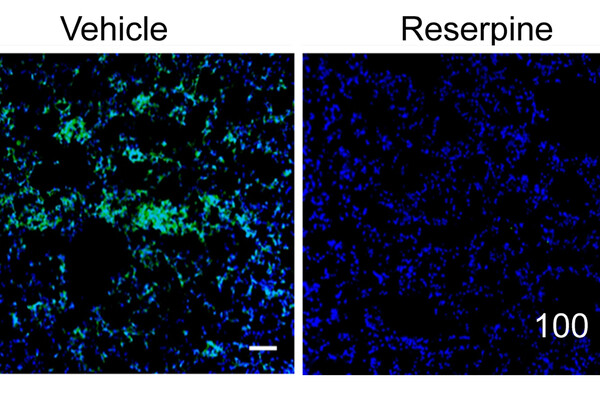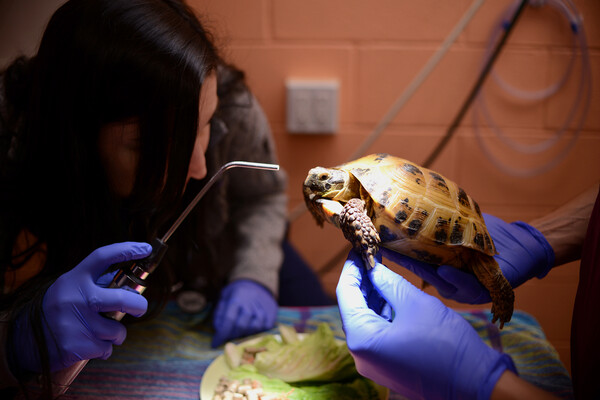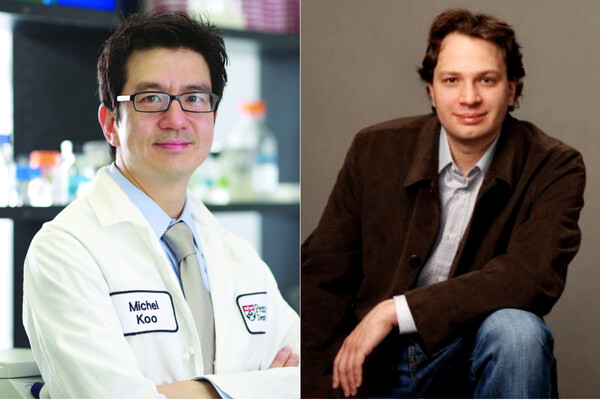Hadza people gather to receive a government-provided food supply of beans and maize. (Photo: Alessia Ranciaro/Tishkoff Lab)
Articles from Katherine Unger Baillie

For Mia Levine, an assistant professor in the biology department, shown with postdoctoral scientist Cara Brand, participating in the Pathways program has given her a chance to take a step back from the demands of her day-to-day tasks and reflect on larger goals.
Launching junior faculty into fulfilling careers

In a mouse model, the FDA-approved drug reserpine seemed to hamper the ability of tumors to reshape distant tissues in ways that would encourage metastasis, for example, reducing the accumulation of fibronectin, a protein associated with certain types of cancer.
Hindering melanoma metastasis with an FDA-approved drug

Archaeological evidence for solstice celebrations abounds in the ancient North American city of Cahokia, located in what is now Illinois. (Illustration: Steven Patricia/Art Institute of Chicago)
Marking the winter solstice, from Neolithic times to today

Fourth-year veterinary student Sarah Gronsky gets a close-up view of Cordelia, a Russian tortoise, at the School of Veterinary Medicine’s Ryan Hospital. To stand out in a competitive field, students hoping to pursue exotics veterinary medicine often squeeze extra research and training into their schedules.
Going out of the box to learn to treat exotic creatures

Co-founders of the "Caminos en Ciencia" podcast, biomedicine doctoral students Enrique Lin-Shiao and Kevin Alicea-Torres craft their program to highlight the career tracks and accomplishments of Latinx scientists. (Photo: Courtesy of Lin-Shiao and Alicea-Torres)
Podcast series charts a path for Latin Americans in science

The Engagement Prize has given grads Hjemdahl and Balasubramanian the chance to apply their Penn educations toward “building a movement” they believe in. (Photo: Eric Sucar, Office of University Communications)
Building a circular economy movement in India and beyond

Bigger brains are smarter, but not by much

Hyun (Michel) Koo and Joshua Plotkin
Two from Penn named to new class of AAAS Fellows

As the population ages, cases of age-related macular degeneration are forecast to skyrocket. New research led by a team from Penn may help make inroads into understanding its roots and possible therapies.